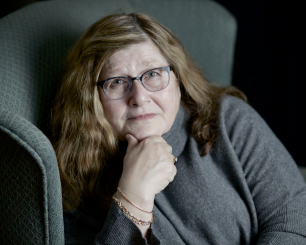 Today, I welcome author Sherry Knowlton for a visit. This Pennsylvania native has been writing in one form or another since elementary school. Along the way, her creative and technical work has run the gamut from poetry, essays, and short stories to environmental newsletters, policy papers, regulations, and grant proposals. Her debut novel published in 2014 and her third book in the Alexa Williams series launched in April of this year.
Today, I welcome author Sherry Knowlton for a visit. This Pennsylvania native has been writing in one form or another since elementary school. Along the way, her creative and technical work has run the gamut from poetry, essays, and short stories to environmental newsletters, policy papers, regulations, and grant proposals. Her debut novel published in 2014 and her third book in the Alexa Williams series launched in April of this year.
Let’s get to know Sherry.
- Tell us, what literary pilgrimages have you gone on?
I’ve only gone on one deliberate literary pilgrimage. In college, I did a semester-long Independent Studies project on D.H. Lawrence’s novels. Many years ago, I attended a work conference in Santa Fe, New Mexico. Since it was my first visit to the area, I arrived a few days early and drove to nearby Taos to visit the Lawrence Memorial at his Kiowa Ranch. The author’s ashes are interred there, so I wanted to pay him homage.
It was a pretty weird experience. The Memorial was back a remote, dirt lane, high on a 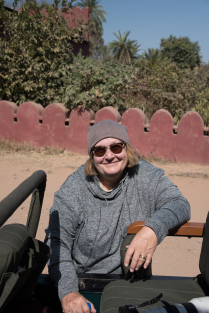 windswept hill. The place was completely deserted. Just me, the cold wind, and Lawrence’s ashes somewhere in the small shrine. Although Lawrence had lived at Kiowa Ranch for several years, most of the books I’d studied – Lady Chatterley’s Lover, Sons and Lovers, Women in Love – were set in the British Isles. So, his final resting place seemed out of step with much of his work – except for The Plumed Serpent, which is based in Mexico and incorporates Aztec themes. But, Lawrence’s writing was ahead of his time, much of it vilified in the early 1900’s (and later) as pornography. He only gained a reputation as an important author after his death. So, maybe it’s fitting that his ashes rest in peace and quiet above the noise and rancor that he experienced during his life.
windswept hill. The place was completely deserted. Just me, the cold wind, and Lawrence’s ashes somewhere in the small shrine. Although Lawrence had lived at Kiowa Ranch for several years, most of the books I’d studied – Lady Chatterley’s Lover, Sons and Lovers, Women in Love – were set in the British Isles. So, his final resting place seemed out of step with much of his work – except for The Plumed Serpent, which is based in Mexico and incorporates Aztec themes. But, Lawrence’s writing was ahead of his time, much of it vilified in the early 1900’s (and later) as pornography. He only gained a reputation as an important author after his death. So, maybe it’s fitting that his ashes rest in peace and quiet above the noise and rancor that he experienced during his life.
A myriad of other authors have inspired my love of travel although I wouldn’t call the trips pilgrimages. Mary Stewart’s novels, like The Moonspinners, sent me sailing in the Cyclades Islands of Greece. Reading Robert Ruark and Ernest Hemingway whetted my appetite for Africa. Robert Ludlum’s books made me want to careen through the capitals of Europe. I could go on, but you get the idea.
- What is the first book that made you cry?
This isn’t a very fair question for someone who cries regularly when reading. I cry if a beloved character dies. I cry if the dog dies. I cry at the perfect romantic moment. And, don’t get me started on movies. I’ve seen the old Streisand/Redford movie The Way We Were umpteen times. Every time it gets to the part where Redford and his friend are sailing and reminiscing about their best year and the Redford character says, “1944, no, 1945” then whispers “1946” – I start sobbing. Every time. Heck, I even cry at those heartwarming commercials with the Budweiser Clydesdales and dogs.
With so many fiction-induced tears in my life, I can’t really remember the first book that made me cry. I know that The Diary of Anne Frank and To Kill a Mockingbird were two early books that affected me deeply. In my junior high or high school years, I remember my devastation at the end of For Whom the Bell Tolls. (Spoiler alert.) Robert Jordan’s self-sacrifice made me sob aloud.
In all seriousness, these days I generally avoid novels that scream tearjerker. There are a glut of novels, often characterized as women’s fiction or literary fiction, which seem engineered to be emotionally manipulative. I’m not saying that all women’s or literary fiction falls into this bucket. But, there’s a certain strain of fiction that seems written purely to tug at the heartstrings. I’d rather read a book that tells a compelling story and develops absorbing characters, so the emotion invoked is more honest.
- Do you want each book to stand on its own, or are you trying to build a body of work with connections between each book?
I have three books to date in my Alexa Williams suspense series, Dead of Autumn, Dead of Summer and the latest April release Dead of Spring. Each book is written as a stand-alone, so a reader can pick it up and enjoy the story even though they might not have read the other books in the series. However, many of the characters continue in one or more books: my protagonist, Alexa’s, friends, family, colleagues, and her English mastiff, Scout. Of course, these are suspense novels with an element of murder mystery, so in each book, a handful of characters don’t make it out alive.
One of the other key connections between my books is that social and environmental issues that are fundamental to the plots. The latest, Dead of Spring, involves Alexa in the controversial areas of fracking and political corruption. The themes of my earlier novels include reproductive rights for women and religious fundamentalism (Dead of Autumn) and sex trafficking (Dead of Summer). I believe that plots dealing with real-life current topics speak to readers and engage them in the suspense.
- How did publishing your first book change your process of writing?
Publication of my first book changed my process in two key aspects. First, it gave me more confidence about my writing. Second, it gave me a greater understanding of the editing and publishing process. I knew better what to expect when the manuscript left my hands and went to my publisher, Sunbury Press. So, that meant that I produced my next two manuscripts in a shorter timeframe, primarily because I didn’t do as many draft versions.
Now, that doesn’t mean that I still don’t edit and revise and re-edit. Plus, I have a group of beta-readers who review and comment on a late draft – and I incorporate much of their feedback. But, on my first novel, I got caught up in multiple revisions and probably wasted months before I submitted the manuscript to a publisher. I’ve learned that you have to do your best to revise and refine your work, but at some point, you also have to let it go. I’m lucky in that I have a wonderful editor who works with me on several rounds of edits prior to publication and always helps me make the final book better.
- I can relate. It’s so hard to let go of that first one. What was an early experience where you learned that language had power?
As a reporter and, then, editor of my high school newspaper, I began to understand the power that things like word choice, what to include or exclude in a story, etc. could have in shaping student knowledge and opinion. Back then, journalism was very much Who/What/When/Where/Why and How, but even without any overt opinion or spin, the writer could have enormous impact.
That lesson was really reinforced for me when a nationally-syndicated war correspondent spoke at our journalism awards banquet. This was in the mid-point of the Vietnam War. As this real-life reporter who wrote stories about life and death matters spoke, I realized the influence that his written words could have on the public perception of the war. What he chose to write about or not write about could end up shaping opinions in a contentious national conversation. I’ve never forgotten that lesson about the power of words – a power that extends into many areas of our lives, well beyond politics and public policy.
- I love research. What kind of research do you do, and how long do you spend researching before beginning a book?
I do a good bit of research before I begin each book, but I usually find that I need to augment the initial research as I write. To illustrate my process, let me talk about the process for my latest book. Like my other novels, Dead of Spring is primarily a contemporary suspense story, but there’s a parallel historical plot. The contemporary story deals with fracking and government corruption. The historical story takes place during the Three Mile Island nuclear crisis in 1979. I found a lot of written material on the internet, reviewed State regulations, viewed news clips, and more. I talked to experts in law enforcement and in hydraulic fracturing. One of my most useful bits of research came when I visited a landowner in northern Pennsylvania who had leased his land to an energy company for fracking. He leased in the early days of fracking in Pennsylvania and was unaware of the problems he might encounter. He shared his experience by showing me his photographs of the process that transformed his property. A beautiful woodland that step by step by step turned into an acre of gravel and machinery. Pristine drinking water that now requires constant filtering just for showers and bathing. Battles with the energy company about compensation for various problems. I also visited sites where I could view the various steps of the fracking process.
The preliminary research often takes a month or longer. If I find I’m missing key information as I write, I’ll often just mark the spot and return to it later after I’ve done the research. However, if it’s a critical plot point, I need to step away from the writing and research the item immediately.
- How do you select the names of your characters?
Character names are one of the hardest parts about writing. Who knew a novel had so many characters? Often, you even have to name random characters who may only “walk on” for a scene. I use some favorite names and variations on family names for some of my main characters. The rest I pull from news articles, people I know or meet, and baby name books for the year of the character’s birth. Sometimes, I hear a name that strikes me as perfect and I’ll jot it down to use in a future book. Here are just a few of the lessons I’ve learned.
You don’t want to repeat names or use names that sound too similar. I made this mistake in my first book by naming Alexa’s best friend Melissa and her executive assistant Melinda. Since these are continuing characters, I’m stuck with the confusion forever – unless I fire Melinda and she’s such a nice woman, I’d hesitate to do that. Heck, even I find myself confusing the two names when I write.
Don’t give a bad guy the same name as one of your friends or colleagues. In Dead of Autumn, I gave one of the bad guys the same name as a work colleague. I was just looking for a biblical name, and used it without thinking of my colleague. But he’ll never let me hear the end of it.
Think about readings. In Dead of Summer, I asked a Thai friend to help me name a Thai victim of sex trafficking. Together we picked a name that has real meaning to the arc of the character. But, now, I can never choose a passage containing her name for a public reading, because I can never remember how to pronounce the multisyllabic Thai name without stumbling over it.
- I think readers are sometimes surprised to learn how immersed authors are with their writing. What was your hardest scene to write?
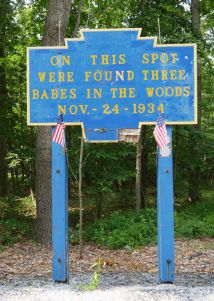 In my first novel, Dead of Autumn, the historical subplot is a fictionalized treatment of a historical incident, the Babes in the Woods murders. Three young sisters were found dead in a Pennsylvania forest during the Depression after traveling from California with their father and an older female cousin. The last chapter of this Babes in the Woods saga was very difficult for me to write. I was surprised at the amount of emotion I felt as I wrote that final scene with ten-year-old Dewilla Noakes and her father. By the time I got there, I had become so connected to my vision of this young girl, that writing that last scene was a gut-wrenching experience.
In my first novel, Dead of Autumn, the historical subplot is a fictionalized treatment of a historical incident, the Babes in the Woods murders. Three young sisters were found dead in a Pennsylvania forest during the Depression after traveling from California with their father and an older female cousin. The last chapter of this Babes in the Woods saga was very difficult for me to write. I was surprised at the amount of emotion I felt as I wrote that final scene with ten-year-old Dewilla Noakes and her father. By the time I got there, I had become so connected to my vision of this young girl, that writing that last scene was a gut-wrenching experience.
- What is your favorite childhood book?

The Nancy Drew series. Sometimes I think I’m writing a grown up version of Nancy Drew although Alexa is stronger and steelier. And, she doesn’t worry about matching sweater sets. Plus, she’s not ready to settle for Ned.
- What’s the most difficult part of your artistic process?
Starting the next book. I’m don’t adhere to the advice that you must write something every day, even if it’s just a few pages. After a book is finished, I usually need a break. Then, I pull together the thoughts I’ve had about my next book and organize them. I do research and prepare an outline, although parts of the outline usually evolve as I begin to write. Then, I’m ready to begin the next book.
 But, sometimes the rest of my life intervenes in the writing process. My husband and I do a lot of extended traveling. We just came back from six weeks on safari in Africa and India. Also, I do consulting projects from time to time that are usually time-limited with a hard deadline.
But, sometimes the rest of my life intervenes in the writing process. My husband and I do a lot of extended traveling. We just came back from six weeks on safari in Africa and India. Also, I do consulting projects from time to time that are usually time-limited with a hard deadline.
All of these factors can contribute to delays in getting my next book underway. I’m struggling with that now. One good thing. Once I begin, I usually get caught up in the writing and just plow ahead until I’ve finished the first draft.
- Do you Google yourself?
You caught me. Yes, I do. And, it can be an enlightening process. Sometimes, I’m checking to see if a promised article or blog post has been published. Sometimes, I’ve found that I’ve been mentioned in an article or on a blog – and I wasn’t aware of it. Twice, I’ve found that someone pirated my book and was peddling it online; so, I let my publisher know.
One of the interesting results of searching my name online are the trails to my past life that pop up from time to time. In the 1990’s I worked for the Commonwealth of Pennsylvania in a job where, in my official capacity, I issued a lot of communications about the Medicaid program in the state. A lot of those bulletins and related work from those days are hanging around out there on the internet. Some of them, I don’t even remember signing.
But, my primary purpose in Googling these days, is to keep current for author-related marketing purposes.
I must confess, I have not read Sherry’s books yet because she’s a new author to me. But, they are definitely on my TBR list now!
Read about her latest novel: Dead of Spring 
When a beloved state senator plunges to his death at Alexa Williams’ feet in the Capitol Rotunda, the authorities suspect suicide. Although the powerful chair of the Environmental Resources and Energy Committee was at the center of a controversial new bill to expand hydraulic fracturing, he was also rumored to be ill. Shaken, Alexa tries to move past the disturbing incident by concentrating on work. She’s leading a senate commission on sex trafficking. Plus, she’s helping an old college roommate sue a natural gas company for their role in causing her daughter’s rare cancer.
In researching the lawsuit, Alexa becomes embroiled in the high-stakes politics of fracking. As the relationship with her state trooper boyfriend drifts onto the rocks, Alexa is drawn to a charismatic state legislator who’s leading an anti-fracking crusade. Then, the police shock Alexa with the news that she could be in danger; she’s a witness to the senator’s murder, not his suicide.
When Alexa narrowly escapes a sniper’s bullet, she must discover why she’s a target―and who she can trust—before the next shot hits its mark.
With Sherry Knowlton’s trademark mix of feminism, history, romance, and fast-paced thrills, Dead of Springskyrockets from the fracking fields of the Marcellus Shale to the Three Mile Island nuclear disaster of 1979 to the rolling hills of Tuscany to the halls of Pennsylvania state government. In this suspenseful tale of corruption and runaway greed, Alexa Williams proves, once again, that she’s a formidable heroine. The twists and turns keep will keep you on the edge of your seat.
Here’s where you can get the scoop on the Alexa Williams series:
Amazon Sunbury Barnes & Noble Indie Bound

- More
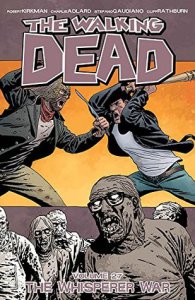



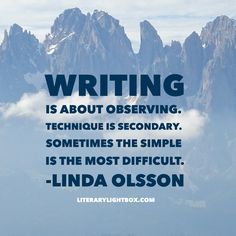
![Highland Dragon Warrior (Dawn of the Highland Dragon Book 1) by [Cooper, Isabel]](/ai/073/367/73367.jpg)